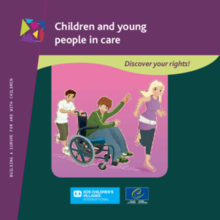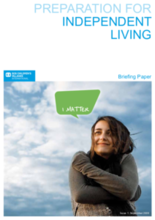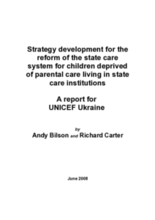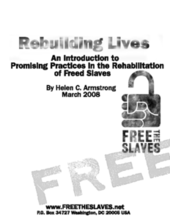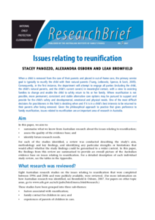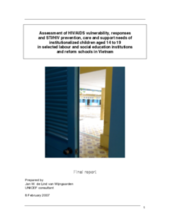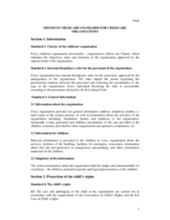Displaying 921 - 930 of 956
This booklet is designed for children and young people in care to explain how alternative care works, what their rights are as young people in care and whether these rights are being respected.
This paper examines the efficacy of Independent Living (IL) services in the United States in preparing foster youth to live “independently”, and calls into question the appropriateness of an “independence” goal for youth aging out of foster care.
First briefing paper of series, aims to share good practices and information exchange on preparation for leaving care and after care support
This report is the result of a workshop held with a group of young care-leavers drawn from ten different charitable children’s institutions or rehabilitation centres and of a questionnaire carried out on the young care-leavers.
This report written for UNICEF identifies the key elements for a strategy to take forward the Government of Ukraine’s programme for the reform of child welfare.
A manual for starting and improving rehabilitation and recovery services for freed slaves, including child victims of slavery, trafficking, the worst forms of child labor, and forced marriages.
Analysis of reunification and reintegration program of 400 children in orphanages
This paper aims to: summarise what we know from Australian research about the issues relating to reunification; assess the quality of the evidence base; and identify future research needs.
Qualitatively assesses the vulnerability of children living in institutional care in Vietnam. Includes specific recommendations for systems strengthening to reduce vulnerability in various institutional contexts.
Guidelines for the minimum standards for residential childcare institutions in Armenia, including how the child should be received, cared for, and the arrangements for the child leaving the institution.

